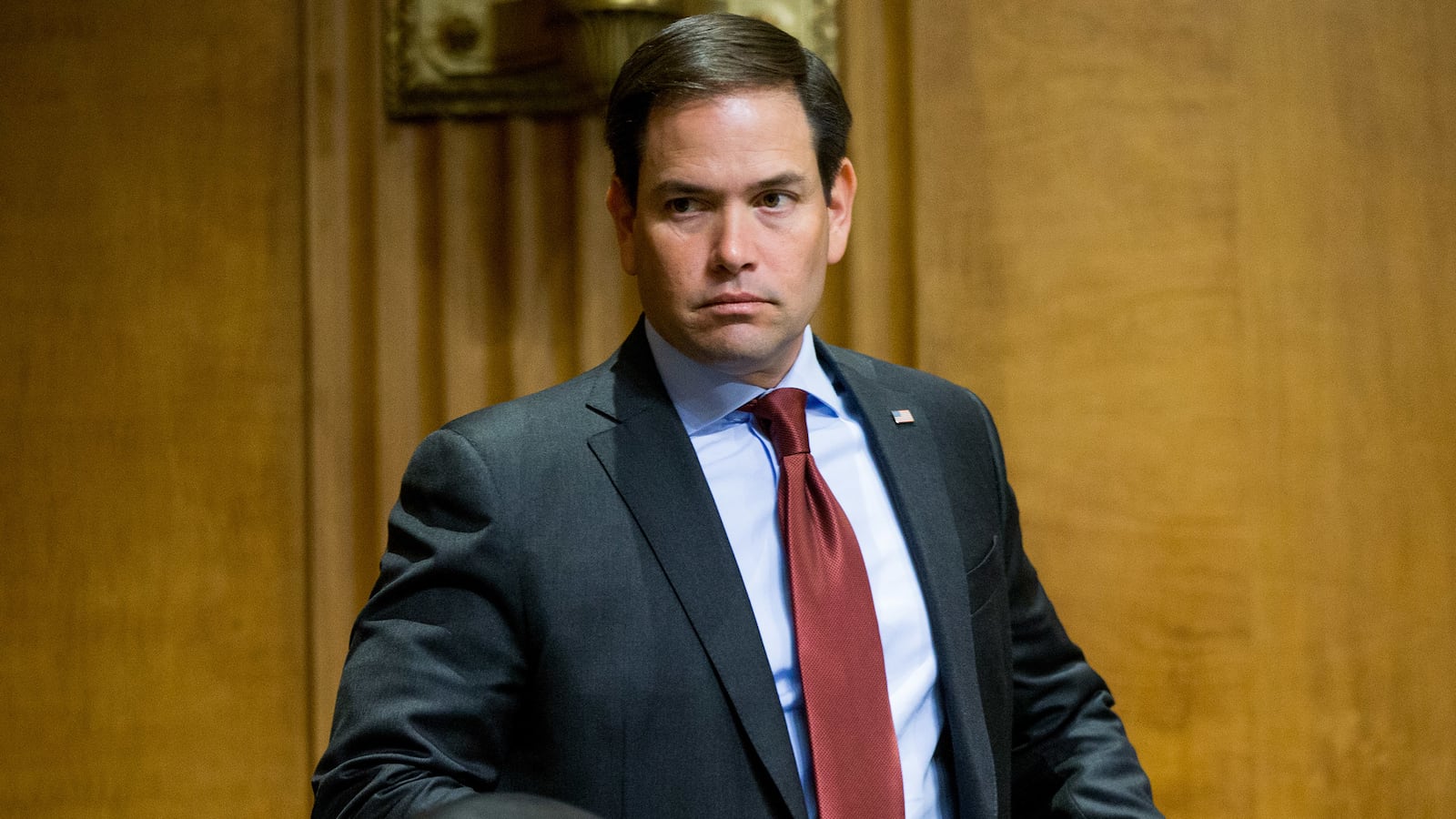After telling Florida voters he was too bored in the Senate to represent them, Marco Rubio said he's had a change of heart.
On Wednesday, the senator from Florida announced he is running for reelection after repeatedly saying he wouldn't during and after his failed presidential bid.
"I understand my opponents will try to use this decision to score political points against me," he said in a statement. "Have at it. Because I have never claimed to be perfect, or to have all the answers."
By making the decision to run for Senate, he is making the conscious decision to run on the same ballot as Donald Trump—placing his fate in the hands of a man he has said he wouldn't trust with the nuclear codes and who destroyed his own bid for the White House.
It was only three months ago that Trump defeated Rubio in his home state by 46 to 27 percent.
The defeat came after Trump dismissed him as “Little Marco” and after Rubio responded by calling him a “con man” and teasing him about the size of his hands and penis.
At the heart of the loss in his home state was that Florida tea party movement who felt abandoned by Rubio thanks to his involvement in the so-called Gang of Eight’s immigration reform push.
Rubio’s mind has apparently changed in part because there was no clear frontrunner on the GOP side to replace him, and he said the mass murder of 49 people at an Orlando LGBT club renewed interest. It’s an odd reason to cite, considering his opposition to gun control (he has an 'A' rating from the NRA) and his opposition to gay rights (he opposes same-sex marriage.)
It’s also odd that Rubio would want to stay in the Senate after he said he was running for the White HOuse precisely because he was frustrated about how little one senator could achieve.
Not that he tried all that hard: Rubio attended only 219 out of 339 votes in the Senate in 2015, missing a chamber-high 35.4 percent of all votes. Rubio missed 60 percent of Senate Foreign Relations Committee hearings since he took office in 2011. All in all, Rubio missed 68 percent of hearings for the committees he was on. In October 2015, government watchdogs began to urge Rubio to either show up to votes and earn his $174,000 annual salary, or resign outright to run for president.
Jeb Bush, his former home-state governor and mentor, criticized him during the presidential campaign for not showing up to work.
“I’m a constituent of the senator and I helped him and expected he would show up to work,” Bush said during an October debate. “You can campaign, or just resign and let someone else take the job.”
His constituents began to notice. Several coastal communities, complained Rubio hasn’t “done shit” to help them with a growing ecological disaster.
But after his presidential dreams were shattered, Rubio stopped in to check on them.
In some ways — and tea party activists in Florida will surely make this point — Rubio’s 2016 Senate run looks a lot like Charlie Crist’s 2010 Senate run. After all, in 2010, Rubio beat the former Republican and former Florida governor by arguing that Crist was an establishment figure that was out-of-touch and stayed in politics too long. On the presidential campaign trail, Rubio had argued that being in the Senate too long was like taking a rough stone and throwing it in a river, smoothing away all the edges.






